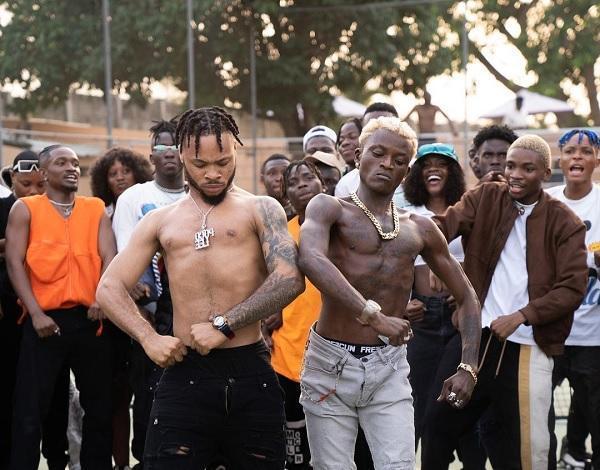
Psychotropic music can be described as any music which alters perception, mood, consciousness and behaviour, just the same way psychotropic drugs do. Most promoters of this brand of music often end up battling mental health issues, largely because it is easier for a camel to pass through the eye of a needle than for them to do without combining the music genre with the consumption of psychotropic drugs. While they sometimes churn out messages of positive change and hope to the world through their music, it is unfortunate that such useful messages are often drowned by the tears that their pathetic ending elicits from the eyes of their fans.
In the sixties, psychedelic rock, which had a strong presence in the United States, gave rise to different shades of rock musicians who thrilled the world with their energetic performances but ended up becoming examples of how not to use drugs. Jimi Hendrix, the famous rock guitarist, was entangled in series of litigation during his active years up until his death as a result of health complications, partly caused by barbiturate intoxication.
One would have wondered what a famous musician was doing with barbiturates but knowing the type of orientation some of those musicians had would only confirm the fact that drug abuse, to them, was part of their preferred lifestyle – one that suited their kind of music. In fact, within the rock music genre, there also exists “trance music” – a type of electronic dance music characterised by hypnotic rhythms and sounds.
One of the effects of trance music on its listeners is its propensity to trigger a half-conscious state, characterised by an absence of response to external stimuli, typically as induced by hypnosis or through a sedative medium. This feeling is similar to what those who take Colorado get – a sleepwalking effect.
Although Hendrix did not die of the abuse of psychotropic drugs, he however confirmed the use of some of them before his death. One can also conclude that his death through overdose of barbiturates was a testament to the fact that he walked the talk of the brand of music he played and eventually hypnotised himself to the great beyond through the medium of a hypnotic drug. No right-thinking person would have embarked on such a suicidal mission.
The death of Jimi Hendrix was a huge loss to the rock music firmament and to all his fans all over the world. The saddest part of that melancholic chapter was that he was only 27 when he kicked the bucket. Many questioned his rationale for overdosing himself with nine tablets; one, in particular, was 18 times the recommended dose. Perhaps he needed the deepest sleep to commune with the muses or he was simply suffering from diseased cognition.
Hip-hop music is also one of the genres known for its connection with drug abuse and violence. The east-coast–west-coast rivalry in the US in the early and mid-nineties was a particularly dark point in the history of hip-hop music. It witnessed the brutal murders of two of America’s brightest musical talents in the persons of Tupac Shakur and The Notorious B.I.G. Those episodes were not devoid of the influence of drugs and the violence-inducing lyrics of their songs.
According to a recent study conducted at the University College, Birmingham, in the U.K., there are suggestions that “drill” music, also known as hip-hop music with violent or nihilistic lyrics, can be associated with attention-seeking crime. We also know that the correlation between drugs and crime cannot be over-emphasised.
In contemporary Nigerian hip-hop culture, two prominent names come to mind when discussing the illicit use of drugs and the propagation of irresponsible behaviour. Naira Marley and Portable are acts that should be sent to rehabilitation. Their lyrics and lifestyles are unpalatable to the sane mind. How does a musician who encourages our youths to live carelessly add value to the society?
The “Marlian” orientation is one of the greatest threats to the pursuit of sound mental health in Nigeria as of today. Young boys and girls are openly abusing drugs, violating laws and exhibiting all sorts of anti-social behaviour only because they have found a role model in a musician whose personality has been nothing more than questionable and controversial. If his songs are not encouraging the blatant abuse of drugs, they are celebrating the genitalia of women, using all forms of scatological imageries.
Families must awake to the realities of the present age and find effective ways to tame the monstrous appetites of their wards. Psychotropic music is as harmful as psychotropic drugs. In Nigeria, the National Film and Videos Censors Board (NFVCB) has a lot of work to do, otherwise, the nation may soon be faced with “the madding crowd’s ignoble strife”.









